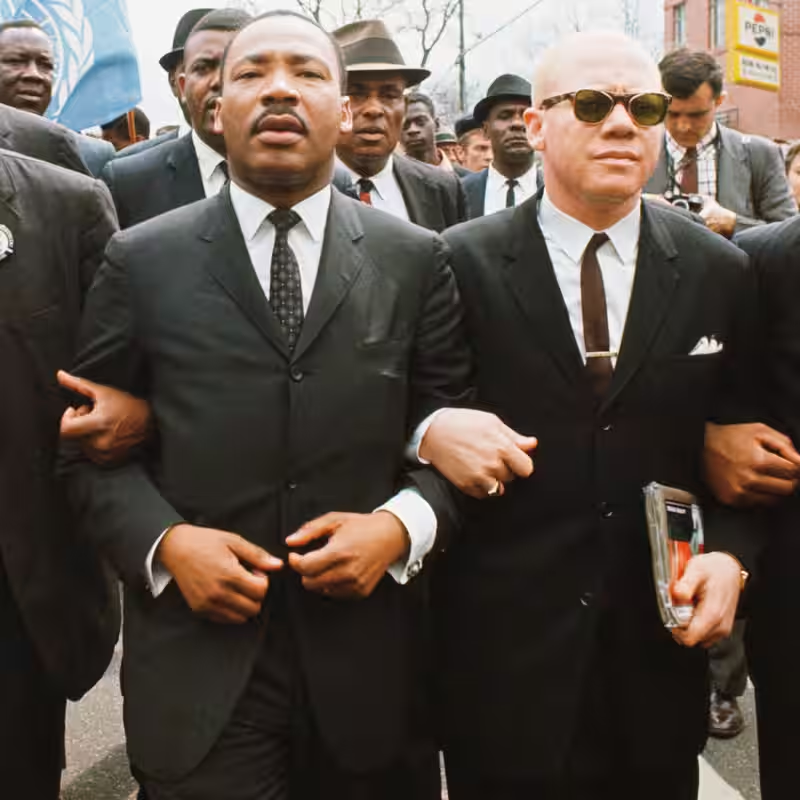Table of Contents
- Civil Rights Giant Passes Away After Decades of Quiet Leadership
- His Pivotal Role in the Selma to Montgomery Marches
- Leading the Montgomery Improvement Association
- A Legacy Long Overlooked—Now Honored
- Key Moments in Jesse L. Douglas’s Life
- Sources
Jesse L. Douglas, Key Civil Rights Leader and King’s Trusted Aide, Dies at 90
The Rev. Jesse L. Douglas Sr., a close aide to Dr. Martin Luther King Jr. and a pivotal organizer of the 1965 Selma voting rights marches—including the historic “Bloody Sunday”—has died at age 90. Though his name may not have echoed as loudly in headlines, his behind-the-scenes leadership helped shape one of the most consequential chapters in American civil rights history.
Douglas passed away on February 17, 2021, in a Charlotte, North Carolina nursing home, but his death went largely unreported until this week. His daughter, Adrienne Douglas Vaulx, confirmed the news to The New York Times, which had prepared an obituary in advance but only recently learned of his passing.
His Pivotal Role in the Selma to Montgomery Marches
In 1965, as tensions over voting rights for Black Americans reached a boiling point in Alabama, Jesse L. Douglas was tapped by Dr. King to help coordinate logistics for the marches from Selma to Montgomery—a 54-mile journey that would become a turning point in U.S. history.
Known for his calm demeanor and meticulous planning, Douglas helped manage everything from transportation and food to security and communication among marchers. His work was especially critical after “Bloody Sunday,” when state troopers violently attacked peaceful demonstrators on the Edmund Pettus Bridge.
“He wasn’t seeking the spotlight,” said a former colleague. “He was there to get the work done—and that work changed America.”
Leading the Montgomery Improvement Association
From 1963 to 1966—the height of the civil rights movement—Douglas served as president of the Montgomery Improvement Association (MIA), the very organization that launched Dr. King into national prominence during the 1955–56 bus boycott sparked by Rosa Parks’ arrest.
Under his leadership, the MIA continued to champion desegregation, voter registration, and economic justice. For over 30 years, Douglas also served on the national board of the Southern Christian Leadership Conference (SCLC), the group co-founded by Dr. King in 1957.
A Legacy Long Overlooked—Now Honored
Unlike some of his more publicly visible peers, Douglas shunned personal fame, preferring to operate in the background where he believed real change happened. Yet historians and civil rights scholars say his contributions were indispensable.
“Without organizers like Jesse Douglas, the marches might never have left Selma,” said Dr. Evelyn Carter, a civil rights historian at Howard University. “He was the glue that held strategy and spirit together.”
Today, as America reckons anew with racial justice, Douglas’s life offers a powerful reminder that leadership isn’t always loud—but it is always essential.
Key Moments in Jesse L. Douglas’s Life
| Year | Milestone |
|---|---|
| 1935 | Born in Alabama |
| 1955 | Witnesses start of Montgomery Bus Boycott |
| 1963–1966 | President, Montgomery Improvement Association |
| 1965 | Key organizer of Selma to Montgomery marches |
| 1960s–1990s | Serves on SCLC national board for over 30 years |
| 2021 | Dies in Charlotte, NC, at age 90 |
| 2025 | Death publicly acknowledged by major media |




